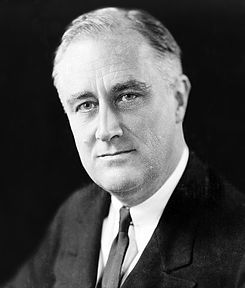“Punting the Pundits” is an Open Thread. It is a selection of editorials and opinions from around the news medium and the internet blogs. The intent is to provide a forum for your reactions and opinions, not just to the opinions presented, but to what ever you find important.
Thanks to ek hornbeck, click on the link and you can access all the past “Punting the Pundits”
Wednesday is Ladies Day. The Gentlemen and another Lady are below the fold.
Katrina vanden Heuvel: Gorbachev at 80
The end of the 20th century witnessed an apparently irreversible wave of democratization in several parts of the world. But until the recent dramatic events in Egypt, democratization seemed to have waned-even given way to a new wave of authoritarianism around the world. Except in the promotional plans of professional democratizers, the “romance” disappeared from the news and commentary pages of most American newspapers. Now it has returned, along with a good deal of historical amnesia.
Usually forgotten is that the “wave of democratization” in the late 20th century began in a place, and in a way, that few had expected-Soviet Russia, under the leadership of the head of the Soviet Communist Party, Mikhail Gorbachev. Indeed, the extent to which Gorbachev’s democratic achievements during his nearly seven years in power (1985 to 1991) have been forgotten or obscured is truly remarkable.
Laura Flanders: The F Word: Capital or Community in Wisconsin
It should be the sound of the other shoe dropping, but you’ll have to listen hard to Governor Scott Walker’s budget address because most media will miss most of it. It’s a funny thing about covering budgets. Cutting spending garners a whole lot more attention than cutting taxes.
How many Americans know, for example, that Governor Walker gave $140 million in tax breaks to corporations-right before he announced this fiscal year’s deficit of $137 million? The good people I met last week at the Wisconsin Budget Project call that a structural deficit. I’d go further. It’s not only structural; it’s structured-to bring about exactly this phony budget crisis.
Rose Ann DeMoro: Nurses Offer to Buy President’s Shoes to March With Workers
The past two weeks have been a “Where’s Waldo” moment for President Obama.
He’s been largely a bystander while tens of thousands of American workers, joined by students, and community allies, marched in Madison’s snow and freezing temperatures, and slept on the floors of the capitol to defend their most fundamental right to freedom of assembly and a collective voice.
On Monday, the President told U.S. governors, “I don’t think it does anybody any good when public employees are denigrated or vilified or their rights are infringed upon.”
But the President never addresses the heart of the problem, a clear statement of who is responsible for the crisis — the corporate class and the right, aided by those like President Obama, who enable them. That’s the giant elephant in the room that remains missing in the ‘blame the workers’ paradigm so often repeated by politicians and mainstream media alike.
Many of us recall the pledge made by candidate Barack Obama in Spartanburg, S.C. on November 3, 2007 when he declared:
“Understand this. If American workers are being denied their right to organize and collectively bargain, when I’m in the White House, I’ll put on a comfortable pair of shoes myself. I’ll walk on that picket line with you as President of the United States because Americans deserve to know that somebody is standing in their corner.”
We’re waiting. Nurses, who have been on the ground every day in Madison and at support rallies across the country, will buy his shoes.
Ruth Marcus: Obama’s ‘Where’s Waldo?’ presidency
For a man who won office talking about change we can believe in, Barack Obama can be a strangely passive president. There are a startling number of occasions in which the president has been missing in action – unwilling, reluctant or late to weigh in on the issue of the moment. He is, too often, more reactive than inspirational, more cautious than forceful.
Each of these instances can be explained on its own terms, as matters of legislative strategy, geopolitical calculation or political prudence.
He didn’t want to get mired in legislative details during the health-care debate for fear of repeating the Clinton administration’s prescriptive, take-ours-or-leave-it approach. He doesn’t want to go first on proposing entitlement reform because history teaches that this is not the best route to a deal. He didn’t want to say anything too tough about Libya for fear of endangering Americans trapped there. He didn’t want to weigh in on the labor battle in Wisconsin because, well, it’s a swing state.
Yet the dots connect to form an unsettling portrait of a “Where’s Waldo?” presidency: You frequently have to squint to find the White House amid the larger landscape.



 In this day in 1933, at the height of the Great Depression,
In this day in 1933, at the height of the Great Depression, 
 On this day in 1887,
On this day in 1887, 
 On this day in 1836, the
On this day in 1836, the  The Republic of Texas was created from part of the Mexican state
The Republic of Texas was created from part of the Mexican state 
Recent Comments